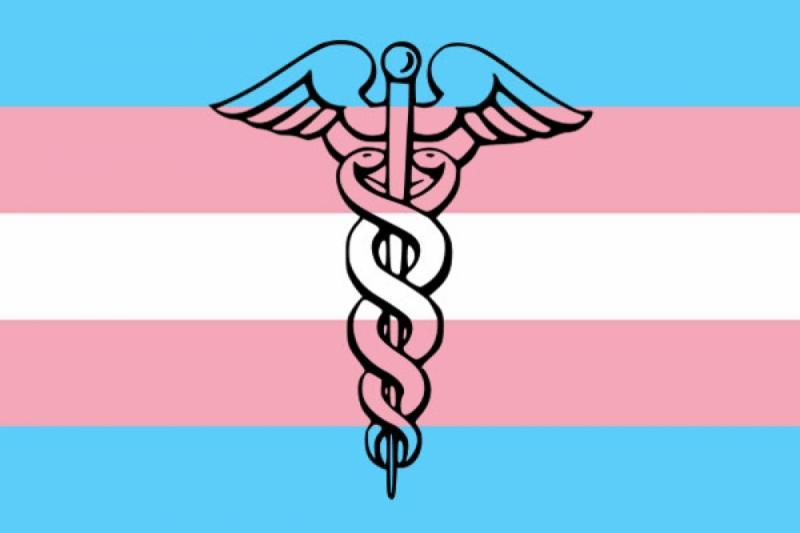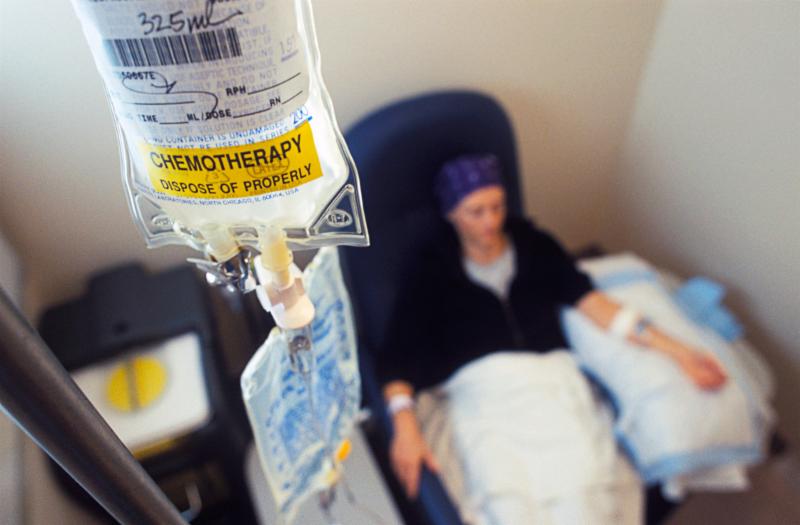|
What's Inside...
- A Message from the Executive Director
- Advocating for the Health of the Trans Community
- Staff Profile: Lisa Morrow, J-MHAP's Salem Juvenile Court Mental Health Advocate
- HLA's Parity Advocacy Heads to the White House
- The 21st Annual Benefit Breakfast is Almost Here!
|
Staff Spotlight
Lisa Morrow
HLA's Mental Health Advocate
f
or the Salem
Juvenile Court
|
For a little more than three years, HLA Attorney Lisa Morrow has advocated on behalf of young people in the Salem Juvenile Court with unmet mental health needs. Lisa is the court's Mental Health Advocate (MHA) and works to remove barriers to mental health care for court-involved children. Her work improves vulnerable children's health, gets them on track in school, stabilizes families and reduces court-involvement. Her work epitomizes the success of HLA's
Juvenile Court Mental Health Advocacy Project.
Lisa has always been interested in working with young people. Her passion grew when she learned about the history of the public school system, specifically, how the availability of resources within a public school are truly indicative of the wealth of a community. "It was fascinating to see how the quality of education in a school district vastly differentiates between town to town almost solely based on wealth."
After receiving her undergraduate degree from Brown University, Lisa graduated from Boston University School of Law and was admitted to the Massachusetts Bar in 2007. She then went on to represent low-income children in regular and special education matters at the Children's Law Center in Massachusetts, where she also educated parents, attorneys, and providers on education law, and successfully worked with multiple stakeholders to improve educational services for under-served children.
Lisa's interest in the public school system evolved into her concern with how young people go through the judicial system. The school-to-prison pipeline, which the ACLU describes as "...a disturbing national trend wherein children are funneled out of public schools and into the juvenile and criminal justice systems," is a complicated phenomenon. There is no one solution.
As Salem's Juvenile Court Mental Health Advocate, Lisa is appointed by a judge to advocate on behalf of the well-being of a young person who is "funneled" into the court system with unmet mental health needs. From working with their schools, families, doctors, and a multitude of other agencies, Lisa collaborates to advocate for the child's best interest.
"Our job as MHAs is getting multiple agencies to work as a team, but it's not always easy. We are not adversarial, by any means, but we do have different frames of reference. Every case is different, and every problem has a customized solution."
One particular case that stuck out for Lisa involved a child who had been in and out of the hospital due to mental and behavioral issues. For almost a year (which is atypical, most cases last six months), Lisa worked with a variety of organizations to ensure quality care and services for this young person. "It was a hugely collaborative effort. You don't want a kid to be in a long-term hospital setting, but this was a very severe case." Because of Lisa's efforts, he is now in one of the best mental health resident programs in the Northeast, and getting the services he needs to stay out of the juvenile court system.
"We are all aware of the struggles of the mental health system and the public school system. And It can be overwhelming to look at the flaws from the macro level. And I can't fix all the problems that are inherent in the system. But creating a solution for one kid that works for them... it's incredibly rewarding."
|
HLA's Mental Health and Substance
Use Parity Advocacy Heads to the White House

For many years, HLA has helped low-income people with mental illness and substance use disorders access care by leveraging the considerable protections in the federal and Massachusetts "Parity Laws." These measures require non-discriminatory insurance coverage for treatment of these conditions.
In March, President Obama took action in support of what HLA has long advocated for - greater enforcement and compliance with the "Parity Laws." The President issued a Presidential Memorandum establishing a Mental Health and Substance Use Task Force "to better ensure compliance with and implementation of requirements related to mental health and substance use disorder parity."
HLA was invited to offer our views at a meeting of the Task Force on April 25th. HLA's Senior Staff Attorney and Director of our Mental Health and Substance Use Parity Initiative, Clare McGorrian, represented HLA at the session at the Eisenhower Executive Office Building in the White House complex.
Later this month, HLA will submit written comments to the Task Force in partnership with our fellow members of the Massachusetts Parity Coalition.
HLA's Parity Initiative is supported by generous grants from the Peter and Elizabeth C. Tower Foundation and the Nord Family Foundation. We are very grateful for their support of HLA and people with mental illness and substance abuse disorders.
|
|
|
|
HLA Staff News
Please join us in welcoming the following addition to our fantastic staff:
Eliza Presson has joined as HLA's Mental Health Advocate for the Lowell Juvenile Court, and will work to make sure young people who move through the juvenile court system have access to needed mental health services. She was previously at the Children's Law Center in Washington D.C. Eliza graduated from Brown University and Harvard Law School.
Christina Carver is HLA's new Paralegal/Intake Coordinator. Christina comes to HLA from Northeastern University's Co-op Program, and is pursuing her undergraduate degree in Political Science and International Affairs.
Sophie DeGroot joined HLA as our Development Assistant through
Northeastern University's Co-op Program. She is helping plan and execute this year's 21st Benefit Breakfast. Sophie is in her 5th year at Northeastern and will graduate with a Bachelor's degree in Anthropology.
We also bid a bittersweet farewell in December to:
Jocelyn McAuley was HLA's devoted Paralegal/Intake Coordinator through Northeastern University's Co-op Program. Jocelyn will be attending class this Fall and plans to graduate in May 2017 with a degree in International Affairs and Anthropology.
Isabel Raskin was the Mental Health Advocate in Lowell's Juvenile Court, and did fantastic advocacy work for many young people through extraordinary collaboration efforts.
Thank you for the fabulous work you've done at HLA. We wish you all the best in your future endeavors!
View a list of our current staff here.
|
|
|
A Message from the Executive Director
Dear Friends,
We hope you are enjoying a very pleasant summer. As I am sure you are, we are following the topsy-turvy Presidential campaign closely with particular interest in how the result will impact health care access for low-income people. However it turns out, HLA will be prepared to continue to defend the health care rights of those in and near poverty.
This edition highlights some of our recent work that we are most proud of. Your support and partnership along with the
O
l
y
m
p
i
c-sized efforts of our staff and board are what make it all possible. I hope you enjoy reading this edition of The Docket and the remainder of your summer.
We hope to see you soon
.
With appreciation,

Matt Selig
Executive Director
|
Advocating for the Health of the Trans Community
Real change has been achieved, but there remains much to do
Health Law Advocates has a history

of recognizing systemic barriers to health care services facing vulnerable populations and working to break those barriers. At HLA over the past couple of years, we began hearing from more and more individuals who were denied access to gend
er affirming treatment and surgery because they couldn't get their health plan to cover them. In 2013, HLA helped form the Massachusetts Transgender Health Care Coalition and formalized our own Trans Health Access Initiative to coordinate our efforts to address this
pattern of discrimination against the trans community.
In recent years, there have been important improvements in public policy and health plan practices to begin to root out health care discrimination facing trans people. But, inequitable obstacles to health care for this population still abound. We are committed to advocating with others and on behalf of our clients to bring about positive change.
MassHealth implemented new regulations in 2015 to remove its exclusion on coverage for transgender health services with the
strong support of HLA and our Coalition partners. A few months earlier, in 2014, the state's Division of Insurance
ordered commercial health plans to drop trans health exclusions. Previously, under section 1557 of the 2010 Affordable Care Act (ACA), sex-discrimination was
prohibited in any federally funded health program.
|
|
 |
|
HLA AmeriCorps Attorney, Caroline Clair, presenting at Fenway Health to consumers on how to access transgender services.
|
 |
HLA's Trans Health Care Initiative strives to enable transgender individuals to obtain health care free of discrimination in large part by leveraging these legal protections. We're representing a steady stream of low-income clients who've been denied transgender services despite these policies. HLA attorneys lead trainings across the state for communities of trans people, educating them on their rights, how to appeal an insurance denial and where to seek help. We're also working with policymakers and health plans to further improve policies and practices. Staff Attorney Andrew Cohen is heading up the project for HLA.
In June, HLA received a grant from the Massachusetts Bar Foundation to support our trans health work. HLA and the Mass. Trans Political Coalition received a grant, also in June, from Community Catalyst to support our advocacy together. We are very grateful for their generous support.
So, why is transgender health care still so difficult to obtain for many even though the law has changed? Here are some reasons that we have encountered with our clients.
For starters, there are very few, or no, clinicians who provide certain trans health services in Massachusetts and are members of our health plans' networks. Once you identify a provider who can deliver the care, the process for obtaining prior authorization for these services can be incredibly tricky. Also, many providers aren't used to insurance processes because insurance reimbursement in this area is so new.
There is also disagreement over what care is
"medically necessary." Certain services that are necessary as part of a transitional procedure are often not covered.
Laser hair removal for surgery, for example, is a medically-necessary procedure but is often not covered. Accessing services for minors remains be a big issue as well.
These glitches and gaps in insurance coverage can make accessing services incredibly difficult. HLA Staff Attorneys, Andrew Cohen, Caroline Clair, and Wells Wilkinson, and HLA Pro Bono Legal Network member KT Crossman, have successfully advocated for consumers over the past year, enabling them to access services that has tremendously improved their quality of life. If you want to contact HLA about our Trans Health Care Initiative, please email Andrew.
|
Client Profile: Francine
Discharged with little notice, a homeless patient looks to HLA

Imagine you have breast cancer and suffer from mental illness, less than $12,000 in annual income and are homeless. You receive cancer treatments at a hospital and other care at a nursing facility where you are staying because of your extremely fragile condition. Then, your insurance cuts off coverage for your nursing care even though it's not medically safe for you to leave. The facility tells you that it's discharging you in 12 hours. You have no place to go.
This is what happened to Francine* a 58-year-old woman. She called HLA on March 18th, the day she received notice of her planned discharge. Francine wasn't going to leave the nursing facility because she was still receiving radiation treatment, was physically unable to relocate and had no place to relocate to. But, because her insurance coverage was cut off, she was subject to the cost of her stay.
When Francine called HLA, HLA AmeriCorps Attorney Caroline Clair immediately took the case. Caroline evaluated the case and found she needed to defend Francine on two fronts. First, she needed to challenge the facility's blatant violation of law in trying to discharge Francine on 12-hours' notice with no discharge planning. Second, she needed to reverse her health insurer's termination of coverage for skilled nursing care, as Francine was still receiving radiation treatment and suffering from various conditions, and was not well enough to be discharged.
Upon further investigation into the facility's efforts to discharge Francine, Caroline made several disturbing findings. To begin, the facility expressly stated on the Notice to Discharge, that Francine was being discharged based on her inability to pay for care, rather than her health status. Further, as noted earlier, Francine received one-day advance notice of discharge, when the law requires 30-days' notice. Francine was also not provided with any discharge planning, such as home supports, mental health supports, or follow-up appointments with providers. Finally, the facility provided the address of a community development organization as the location for her to be discharged to, rather than an actual residence.
Caroline also exhaustively reviewed Francine's complete medical records to determine if there was a basis for her insurer's termination of coverage. She found there was not. While the insurer's determination that Francine no longer needed skilled nursing care was based on its finding that she was healthy enough to be discharged, Caroline's review of the records uncovered a different story. The nursing facility's own records clearly showed that Francine required, and received, skilled nursing care between the date her coverage ended (March 19th) and the date she left the facility (April 11th) when she was finally healthy enough to leave.
Caroline represented Francine at two separate appeal hearings to contest the unlawful discharge notice and termination of coverage, respectively. Francine received a favorable decision on May 23rd, declaring that the nursing facility failed in its duty to provide her with appropriate notice of discharge. On June 16th, Francine received a decision that her coverage was unlawfully terminated. As a result, the nursing facility's bill for $5,520 for care between March 19th and April 11th was covered. The amount would have equaled about half of Francine's annual income.
|
|
The Breakfast is Coming! The Breakfast is Coming!

The 21st Annual Benefit Breakfast is almost three months away! Here at HLA, we have been busy writing letters, recruiting sponsors, and spreading the word: the Breakfast is coming.
Don't forget to mark your calendars!
Same time, same place, different date.
Wednesday, November 16, 2016
7:00 - 9:15 AM
Sheraton Boston Hotel
We are thrilled to have the following companies and individuals sponsor the
21st Annual Benefit Breakfast thus far:
Gold Sponsor
Justice Resource Institute
Silver Sponsors
Foley & Lardner LLP
Greylock McKinnon
Lahey Health
Locke Lord
Proskauer Rose LLP
Sunstein Kann Murphy & Timbers LLP
Bronze Sponsors
AARP Massachusetts
Bay Cove Human Services
Boston Health Care for the Homeless Program
Boston Public Health Commission
Brody, Hardoon, Perkins & Kesten
Brookline Bank
Caregiver Homes of Massachusetts (SeniorLink)
CeltiCare Health Plan of Massachusetts
Delta Dental of Massachusetts
Hemenway & Barnes
Massachusetts Association for Mental Health
Massachusetts Medical Society
Prince Lobel Tye LLP
University of Massachusetts Medical School
Vinfen
Advocate Sponsors
Charles & Nancy Donahue
Lisa Fleming
David Nalven & Jill Goldman
Partner Sponsors
John Abramson
Michael & Kitty Dukakis
Roy & Sylvia Hammer
Karen Schwartzman
Matt Selig & Katie Annas
Peter Shorett
If you are interested in sponsoring the 21st Benefit Breakfast or learning more, please contact Emily Tabor at etabor@hla-inc.org or 617.275.2881.
|
|
| |
| |
|